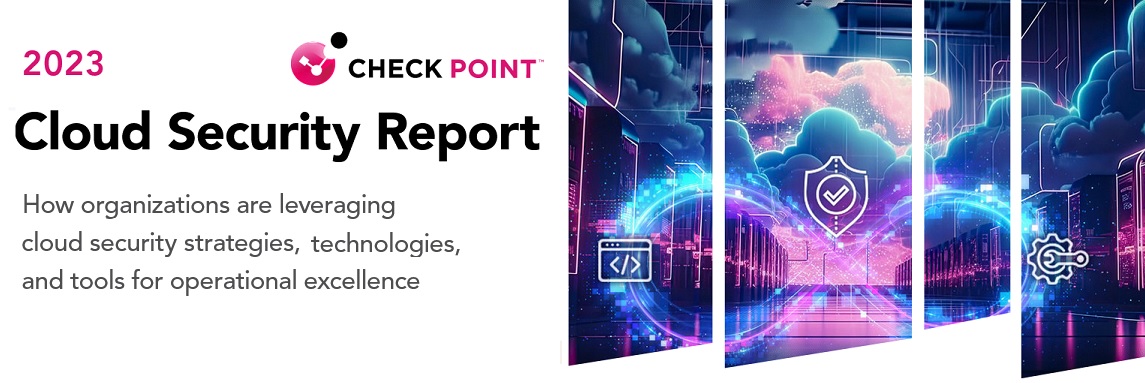JFrog announced a new machine learning (ML) lifecycle integration between JFrog Artifactory and MLflow, an open source software platform originally developed by Databricks.
Companies are increasingly embracing the power and agility of cloud-based solutions, with more than 20% of their workloads running in the cloud today, with plans to grow more than 50% in the next 18 months. With this accelerated cloud adoption comes inherent challenges and apprehension, as Check Point's 2023 Cloud Security Report reveals. As a result, 76% of organizations are apprehensive about cloud security, and cloud-based attacks are increasing at an alarming rate.
The greatest security attack threat is cloud misconfigurations, with a quarter of the respondents stating that they have already succumbed to a public cloud security incident due to a misconfiguration. In addition, the survey found that cloud misconfiguration was seen as the primary risk by 60% of the participants.
The 2023 Cloud Security Report results also show that organizations are still dealing with fundamental cloud security challenges. For instance, 58% of organizations need help to deploy and manage a complete solution across all cloud environments, 52% struggle to ensure data protection and privacy, and 49% struggle to understand how different security solutions fit together. A real cause for concern is that an overwhelming 43% of organizations need to access three to four separate security solutions to configure the policies that secure their enterprise's cloud footprint.
One potential solution to these challenges is the consolidation of security policies, operations, and responsibilities into a single platform. With only 20% of respondents having a comprehensive DevSecOps process in place, it is clear that more organizations should implement a developer-centric approach that enforces security policies throughout the software development lifecycle. This prevents developers from creating friction in the development process while securing the system effectively.
A developer-centric approach is a paradigm shift from the traditional top-down approach that separates developers from security operations. This approach requires developers to have the necessary context to identify, prioritize, and remediate security risks within the software supply chain. To make this a reality, better-integrating features such as code scanning, effective risk management, and CIEM are essential building blocks for mitigating risk and employing zero trust across the board.
Moving forward, we expect to see the expansion of comprehensive DevSecOps processes in organizations, with developers taking active roles in decisions about what technologies are used to implement security control requirements and standards. More than 40% of DevOps engineers are already being held accountable for technical changes to systems that are required to remediate security and compliance, according to the report.
By embracing a CNAPP platform approach and devoting resources to automation, scaling, and risk management, organizations can achieve the full life cycle protection requirements of cloud-native applications from development to production.
Industry News
Copado announced the general availability of Test Copilot, the AI-powered test creation assistant.
SmartBear has added no-code test automation powered by GenAI to its Zephyr Scale, the solution that delivers scalable, performant test management inside Jira.
Opsera announced that two new patents have been issued for its Unified DevOps Platform, now totaling nine patents issued for the cloud-native DevOps Platform.
mabl announced the addition of mobile application testing to its platform.
Spectro Cloud announced the achievement of a new Amazon Web Services (AWS) Competency designation.
GitLab announced the general availability of GitLab Duo Chat.
SmartBear announced a new version of its API design and documentation tool, SwaggerHub, integrating Stoplight’s API open source tools.
Red Hat announced updates to Red Hat Trusted Software Supply Chain.
Tricentis announced the latest update to the company’s AI offerings with the launch of Tricentis Copilot, a suite of solutions leveraging generative AI to enhance productivity throughout the entire testing lifecycle.
CIQ launched fully supported, upstream stable kernels for Rocky Linux via the CIQ Enterprise Linux Platform, providing enhanced performance, hardware compatibility and security.
Redgate launched an enterprise version of its database monitoring tool, providing a range of new features to address the challenges of scale and complexity faced by larger organizations.
Snyk announced the expansion of its current partnership with Google Cloud to advance secure code generated by Google Cloud’s generative-AI-powered collaborator service, Gemini Code Assist.
Kong announced the commercial availability of Kong Konnect Dedicated Cloud Gateways on Amazon Web Services (AWS).
Pegasystems announced the general availability of Pega Infinity ’24.1™.







